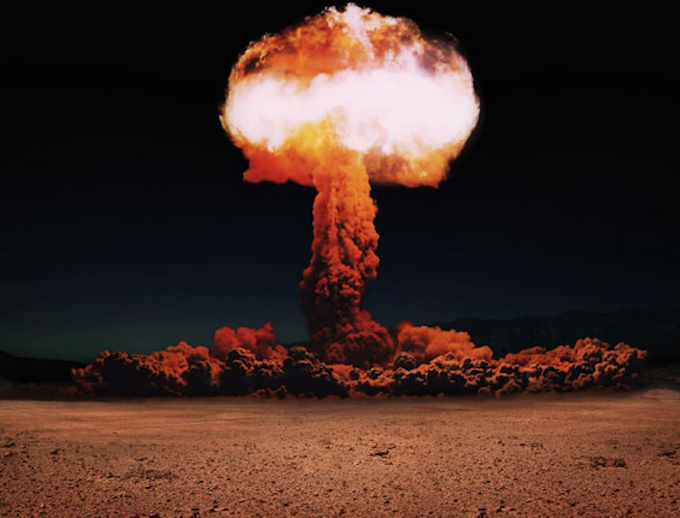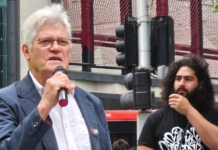
By Mark Rabago, RNZ Pacific Commonwealth of the Northern Marianas correspondent
A Marshall Islands lawmaker has called on Pacific legislatures to establish and strengthen their national human rights commissions to help address the region’s nuclear testing legacy.
“Our people in the Marshall Islands carry voices of our lives that are shaped by this nuclear legacy,” Senator David Anitok said during the second day of the Association of Pacific Island Legislatures (APIL) general assembly in Saipan this week.
“Decades later, our people still endure many consequences, such as cancer, displacement, environmental contamination, and the Micronesian families seeking safety and care abroad. Recent studies and lived experience [have shown] what our elders have always known-the harm is deeper, broader, and longer lasting than what the world once believed.”
Anitok said that once established, these human rights commissions must be independent, inclusive, and empowered to tackle not only the nuclear testing legacy but also issues of injustice, displacement, environmental degradation, and governance.
“Let’s stand together and build a migration network of human rights institutions that will protect our people, our lands, our oceans, our cultures, our heritages, and future generations,” he said.
“Furthermore, we call upon all of you to engage more actively with international human rights mechanisms. Together, it will help shape a future broadened in human rights, peace, and dignity.”

To demonstrate the Marshall Islands’ leadership on human rights, Anitok noted that the country has been elected to the UN Human Rights Council twice under President Dr Hilda Heine — an honour shared in the Pacific only once each by Australia and Tahiti.
Pohnpei Senator Shelten Neth echoed Anitok’s call, demanding justice for the Pacific’s nuclear testing victims.
“Enough is enough. Let’s stop talking the talk and let’s put our efforts together — united we stand and walk the talk.
“Spreading of the nuclear waste is not only confined to the Marshall Islands, and I’m a living witness. I can talk about this from the scientific research already completed, but many don’t want to release it to the general public.
“The contamination is spreading fast. [It’s in] Guam already, and the other nations that are closer to the RMI,” Neth said.
He then urged the United States to accept full responsibility for its nuclear testing programme in the Pacific.
“I [want to tell] Uncle Sam to honestly attend to the accountability of their wrongdoing. Inhuman, unethical, unorthodox, what you did to RMI. The nuclear testing is an injustice!” Neth declared.
Anitok and Neth’s remarks followed a presentation by Diego Valadares Vasconcelos Neto, human rights officer for Micronesia under the UN High Commissioner for Human Rights, who discussed how UN human rights mechanisms can support economic development, health, and welfare in the region.
Neto underscored the UN’s 80-year partnership with the Pacific and its continuing commitment to peace, human rights, and sustainable development in the wake of the Second World War and the nuclear era.
He highlighted key human rights relevant to the Pacific context:
- Right to development — Economic progress must go beyond GDP growth to include social, cultural, and political inclusion;
- Right to a clean, healthy, and sustainable environment — Ensuring access to information, public participation, and justice in environmental matters; and
- Political and civil rights — Upholding participation in governance, freedom of expression and association, equality, and self-determination.
Based in Pohnpei and representing OHCHR’s regional office in Suva, Fiji, Neto outlined UN tools available to assist Pacific legislatures, including the Universal Periodic Review, special procedures (such as thematic experts on water, sanitation, and climate justice), and treaty bodies monitoring state compliance with human rights conventions.
He also urged Pacific parliaments to form permanent human rights committees, ratify more international treaties, and strengthen legislative oversight on human rights implementation.
Neto concluded by citing ongoing UN collaboration in the Marshall Islands-particularly in addressing the human rights impacts of nuclear testing and climate change-and expressed hope for continued dialogue between Pacific lawmakers and the UN Human Rights Office.
This article is republished under a community partnership agreement with RNZ.













































